Order Tramadol Overnight Shipping Paper Birch © 2014 Bo Mackison
…It’s when I’m weary of considerations,
And life is too much like a pathless wood
Where your face burns and tickles with the cobwebs
Broken across it, and one eye is weeping
From a twig’s having lashed across it open.
I’d like to get away from earth awhile
And then come back to it and begin over.
May no fate willfully misunderstand me
And half grant what I wish and snatch me away
Not to return. Earth’s the right place for love:
I don’t know where it’s likely to go better.
I’d like to go by climbing a birch tree,
And climb black branches up a snow-white trunk
Toward heaven, till the tree could bear no more,
But dipped its top and set me down again.
That would be good both going and coming back.
One could do worse than be a swinger of birches.
~ Robert Frost, Birches
Known as a Canadian tree,
its habitat dips into the cooler regions of the United States.
Northeast, Midwest, Pacific Northwest.
Birch tree, a variety of common names.
Paperbark birch
White birch
Paper birch
Canoe birch
Trees just beginning out in life and newer branches on settled trees are white barked,
smooth at first, then knotted with black spirals,
finally emerging as papery bark,
shades of browns, grays, greens and creams,
multiple layers,
wild and messy. And precious to the eye and hand.
The canopy is my space. A place to spy on visitors and nature’s ways.
Like me, it too must have sun, a place of its own in full sun,
or it will not thrive.
Yet it is a pioneer. After fire or clear-cut, the birch is an early returner.
It makes do with less than tolerable conditions as long as it has its sunlight.
Its botanical name is Betula papyrifera.
Papyrus. Oh yes.
If you’ve ever handled the fibrous papyrus, woven horizontal and vertically and pressed flat,
then you will see evidence of those very first papers in this curling, peeling bark
its deep reds and oranges exposed.
Textures so full of depth, the longing to add a human element is strong
and equally strong, the urge to let it be as it is.
An arborist writes the “catkins offer little special interest”.
I disagree. Delicate and pale green, swinging with the rhythm of spring winds.
Seeds feed the redpoll, pine siskin, chickadee; the catkins feed the ruffed grouse.
Catkins transform into nutkins, winged and fringed,
and fly the seeds away from its parent in autumn.
Roots and wings, the parent tree provides.
Once the birch was utilitarian –
Bark as canoe cover.
Containers – baskets, bowls, baby carriers.
Comforts – mats, bedding.
Giver of light – torches.
Tool maker – spears, bows and arrows.
Transportation – snowshoes and sleds.
Sustenance – birch syrup, beer, medicinal tonics.
My birch?
It continues its tradition as a container – as I perch in its tri-trunked seat.
As a comfort – when I hold its wildness in my hands
As a giver of light – of the interior sort.
And as sustenance – for my heart and soul.
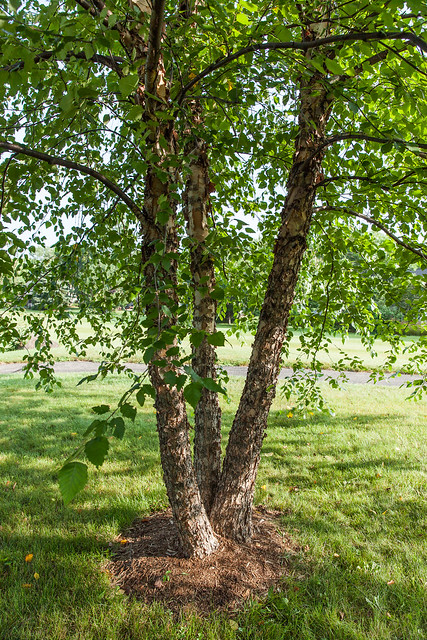
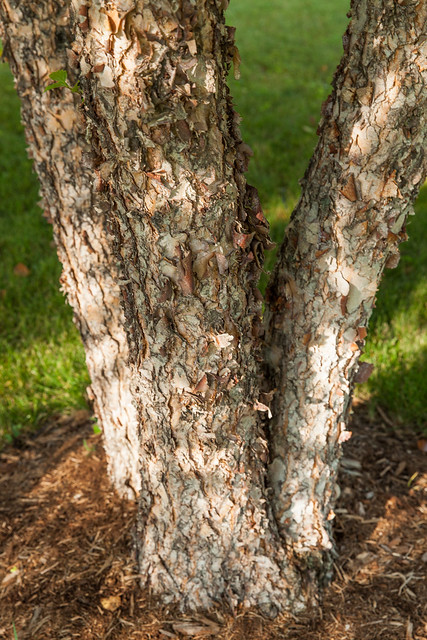
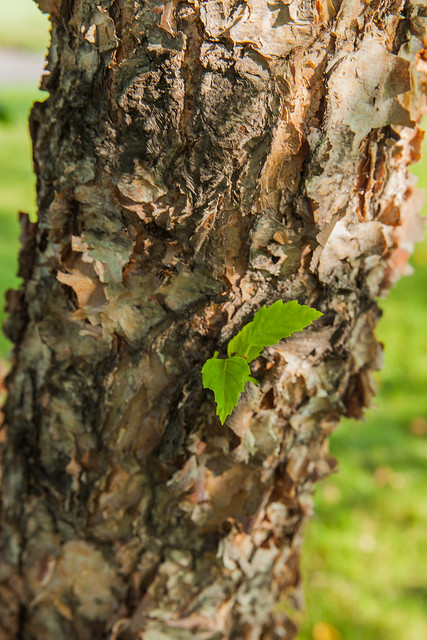
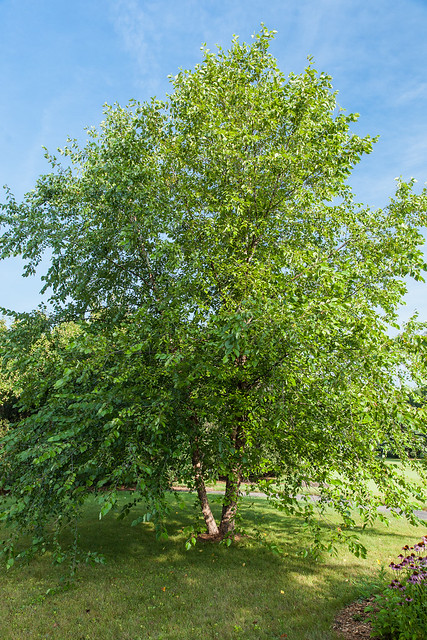
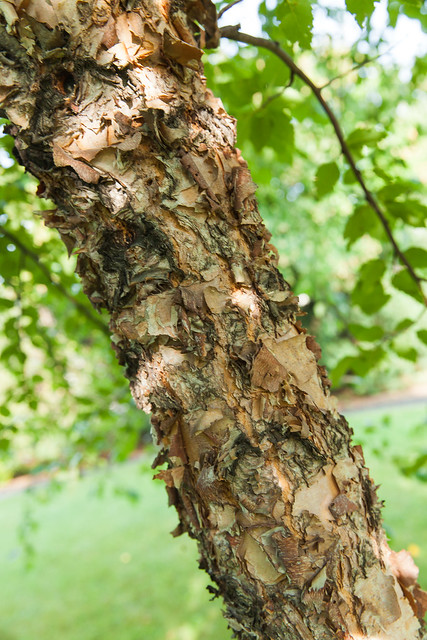
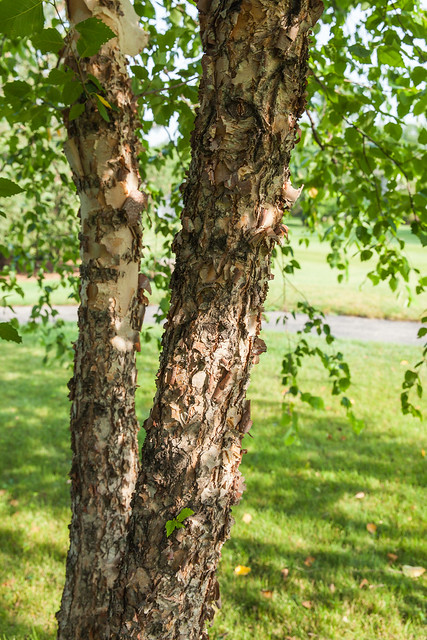
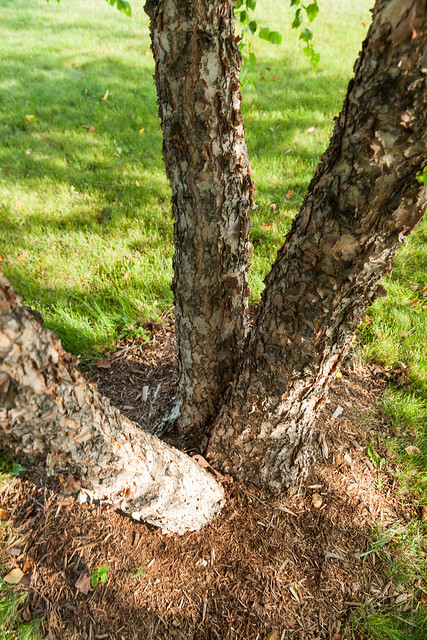







Oh Bo! I don’t often enough stop to say how much I enjoy coming here. After a morning of writing and sweet creamed coffee, this was the first thing I read when I turned on my computer. Thank you. <3
Everyone should have their own tree, and yours is really quite special. The rough textured bark begs to be touched. Does your birch put on a show during autumn? We have river birches in the south but they are not as exquisite as these white birches, imho. Lovely post!